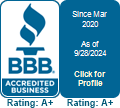
Starting to Save for Retirement after 50: Key Factors to Consider
Hitting the milestone of your 50th birthday may jostle your mind to think ahead to your retirement years. A landmark that felt out of reach a decade ago starts to feel closer with each passing year.
Life’s circumstances like financial setbacks from personal or health crisis, student loans, debt and family care may have forced many to put off dealing with their retirement plans. But, the most common reason is a postponement. This does not mean that you are doomed. As per a study by The Insured Retirement Institute, only 54% of boomers(age 53-71) and quite a few Gen X’ers over 50 have very little or no retirement savings. You can still make it to retirement with a nest egg that will help you to enjoy a comfortable life.
If you have already started saving or about to save for retirement the following tips can guide you to reach your goal over the next fifteen to twenty years.
1. Figure out Your Retirement Goals
Before you start saving you should determine what you want the next chapter of your life to look like and then you should plan how to get there. According to Pressman, you must be “as detailed as you can.” He further went on to say that “People who have an idea about what they are going to do when they retire have more success than those who do not.
While planning for your retired life you should think about your retirement goals like where you want to live and what you want to do. You should also review your expenses like potential medical bills and the kind of support you have like a pension plan or Social Security. However, you should remember that Social security may not have much to offer after 30 years as it does today. So it is important that you must prioritize retirement savings.
2. Steer clear of Retirement Calculators in the Beginning
No doubt calculators are a great tool when you start planning for retirement early but according to Nancy Anderson, a Certified Financial Planner with Key Private Bank in Salt Lake “People who have not saved for retirement before they were 50 should avoid using retirement calculators in the beginning.” It will give them more anxiety as it will show just how behind they are in their savings.
Anderson suggests that “Instead of using calculators you should figure out where you are overspending and begin cutting those costs.” You can use these calculators when you are a little further along the saving process and understand what tweaks you.
3. Make The Most of Your IRA or 401(k) Opportunities
When you plan for retirement do some research and invest smartly. Investing in stocks and bonds can provide a better interest on a savings account which is only 1%. But it is inherently riskier. So what can an over 50 retirement investor do?

The good news is that the year you turn 50 you can take advantage of the “catch-up” rules that allow you to add more money into your IRA or 401(k). If you do not have an IRS account you should open one. The IRS allows you to add $1000 more a year and you can stash an extra $6000 more into a 401(k). These rules apply to both traditional and Roth 410(k) plans and you have an opportunity to catch up on your savings, However, Roth IRAs come up with annual income limits whereas IRA contributions do not.
These plans are “lifestyle” accounts that create the right mix of bonds, cash accounts and stocks that target your retirement year.Certificates of Deposit (CDS) also pay better rates of interest than your savings account.
Another benefit of saving using the traditional 401(k) or IRA is that you have already paid taxes on that money before it was invested and you can withdraw the amount tax-free in retirement.
4. Stay Healthy
Health is Wealth. Keeping this in mind you should adopt some healthy habits like eating a healthy diet, exercising regularly and taking care of your mental health. You should use a bicycle to visit friends or for minor errands. This will help you stay well and vibrant. You should not avoid the doctor’s and dentist’s office. Being unhealthy can impact your later years and preventive care will pay off in the long run.
5. Do Not Ignore Health Insurance
Healthy habits should be coupled with an insurance policy that will help keep your medical costs down. If you are 50 and you are hale and hearty you may not envisage falling sick when you are older. But the risk of health issues can become greater as you age and are one of the key reasons for bankruptcy.
Large medical bills can eat up lifetime savings very fast. So, it is time that you start investing in a more comprehensive medical insurance policy. So, if you have a health emergency it will help you cover the bulk of your medical expenses.
The Medicare you sign up for around your 65th birthday does not cover some medical bills later in life like vision, dental and long-term care. But if you have A Health Savings Account (HAS) it will help you to pay your health expenses both the present as well as after retirement from pre-tax dollars. You should fund this to the maximum or as much as you can afford. If you do not spend the qualified expenses this year it will be carried over from year to year. So, there will be more money to pay for your medical bills in your retirement.
6. Eliminate Debt
Credit Card debt is a big issue for many people. If you have credit card debt you should pay them off. It is a big impediment to being able to save. It is more expensive than other forms of debt as the average interest right now is 16.7%. This is about three times more than the average rate on a five-year car loan (4.2%) and a 30 year fixed mortgage (4.7%).
Next, the average American’s biggest monthly expenditure is a car payment. You can drive a Chevy instead of a Caddy or buy a slightly used car. You can bank this cash and save it for retirement. But do not economize on “your wheels” as you will require reliable transportation when you retire.
7. Other Income Generating Possibilities
When you plan for retirement at the age of 50 you should make some vital life decisions too. You should look at the possibilities given below for saving the maximum amount to live a comfortable life after retirement.
- Delaying Retirement: The best strategy is to delay retirement. This will not just give you the potential to earn and save more but will also affect Social Security benefits. The benefits are based on your earnings and age at which you start collecting them.
Downsize your expenses: Funding money into your retirement accounts means that you must change your spending habits and squeeze extra money from your budget. You should identify extra cash.
You could downsize your living arrangements by moving into a smaller home or to a cheaper part of the country. It does not mean that you have to give up post-retirement hobbies or vacations.
- Upgrade hard goods: Look at hard goods in your home like air conditioning and heating units, appliances and so on. You can replace them now when you have financial options than later when you have a fixed income. You can buy on sale and sell the old unit to save on the purchase price.
Start a side business or do a part-time fun-job: You could start a side business in your free time. But make sure it is not too capital intensive. If you have a hobby or interest you could consider a part-time job at a fun place and save the money you make for retirement.- Pay yourself first: You must remember a cardinal rule once you start your post- 50 savings plan – Pay yourself first. You should send a fixed amount to a separate savings account. You should automate the process so that you are not tempted to spend it on anything else.
Once you have spent six months taking steps to save and enacting some of these strategies you can use a retirement calculator. You will able to see how you are progressing and can make adjustments in your savings like cutting down on expenses and saving more income.
The Bottom Line
With careful consideration and planning, you can get ready to move on to the next stage in life. Your goals should be clearly defined and you must take advantages of the opportunities you have to save. Your hard work and discipline can lead you on the path to security and comfort in your golden years.


